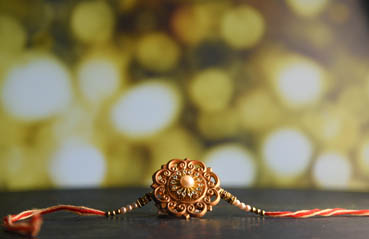Published: 12 Sep 2017
Gold in afterlife

Greek mythology tells the tale of Charon, the ferryman of Hades, who carries the souls of all deceased humans across the river that divide the world of the living from the world of the dead. To pay Charon a fare for providing passage, ancient Greeks put a coin, often made of gold, into the mouths of the deceased.
Some 6,000 km away, in a land laden with mystical beliefs and sacred Gods, Indians followed a different reasoning behind putting gold in the mouth of the deceased. Here too, gold is considered an amulet, thought to provide protection against evil, danger and disease.
Especially in Northern and Western India, where the practice of placing gold in the mouth of the deceased is widespread, gold is considered to have a strong protective influence. The idea is based on the precious metal’s scarcity and value, and on its colour, which is said to be disturbing to evil spirits, according to William Crooke in his book The Popular Religion and Folk-Lore of Northern India.
The legend goes that the precious metal is particularly effective for warding off evil spirits around the dead when it is in the form of ornaments, and especially when they are images of the Gods, have some mystic significance for the deceased’s family, or are made in imitation of some sacred leaf, flower or animal.
According to Crooke, the people of Khandesh, from Central India, put a paan leaf in the mouth of the deceased male, along with a gold bead from his wife’s necklace. The gold bead is to protect the corpse as it passes over and enable him to get closer to God. This post-death rite is considered the final sanskar, and ensures that the soul of the person is not stuck in the Earth region (bhulok) or the region of the dead (martyalok). Ideally, the gold placed in the mouth will help the soul acquire positive momentum and reach higher regions, according to Hindu Janajagruti Samiti. Consequently, the gold reduces the possibility of being enslaved by negative energies and makes it unlikely that the deceased person’s soul will be able to torment the family.
Similarly, in Punjab, the common practice is to put Pancharatana or five kinds of jewels, including gold, in the mouth of the deceased.
While the shape and form of gold is varied based on the geography, religion and sect, it is a common belief that the gold will keep the soul and body clean and pure as it passes on from Earthly bounds.











